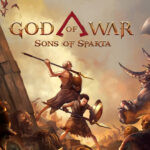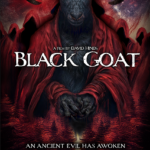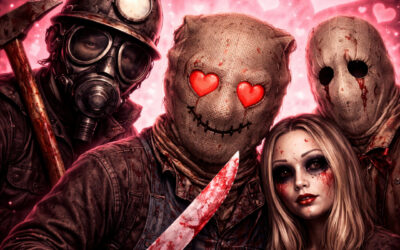It’s no secret that we enjoy being scared. In fiction and films, horror represents one of the strongest and most enduring genres. But the appeal of fear and horror in games might seem a bit harder to understand. Games are about competition and trying to win. By that understanding, being frightened might seem like an unnecessary distraction.
Against the odds
The appeal of competing, whether against other players or the odds, is that it creates a pleasurable feeling of suspense or tension, just like horror films. When you achieve something or win, you get an ecstatic sense of release, a “buzz” that keeps you coming back for more. This underlying similarity is why games and horror are a natural match.
Tension and release
You’ll experience this sensation of tension and release when you gamble with crypto, and it’s what keeps many people coming back to casino sites whether they win or lose. With video games, however, there’s an extra element, as, over the decades, games have become increasingly like Hollywood movies, employing narrative, characterization, atmosphere, and plot alongside traditional gameplay.
Resident Evil
The title that decisively introduced horror tropes to the video-gaming mainstream was Resident Evil back in 1996. The ongoing franchise is still the biggest selling horror game series, running to eight main games plus spin-offs and remakes. The game arguably reinvented the zombie subgenre, helping reinstate it as one of the dominant themes in 21st-century horror, and created the ‘survival horror’ format.
First-person scares
Games can go one better than books and films in simulating the sense of being in mortal danger without actually being at genuine risk. However immersive or effective a book or movie, the horror is still happening to someone else while you observe. In a first-person survival horror game, “you” are the potential victim experiencing the threat, and there’s no guarantee you’ll make it out “alive.”
Silent Hill
Another popular and influential franchise, Silent Hill, brought dark psychological horror and atmospherics to gaming with its first installment in 1999. Drawing on the Japanese horror tradition via David Lynch, Stephen King, and HP Lovecraft, Silent Hill’s deliberately slow-paced, low-key world drew players in far more effectively than maybe any game before or since.
Overcoming challenges
Horror games are also uniquely capable of giving players a sense of achievement, as they overcome seemingly insurmountable odds. Think of the notoriously tricky gameplay of Alien: Isolation (2014), where any movement increases the chance of your alien opponent discovering you, and limited ammunition forces you to be creative in your choice of weapons.
Action-horror games like the classic Dead Space franchise let you fight back against the horror and can prove cathartic. Meanwhile, the stealth game Amnesia: The Dark Descent (2010) explores the whole notion of fear as your character strives to hold onto its sanity. Sound design, innovative visuals, and pacing all conspire to create an immersive, hugely enjoyable environment of terror.
Ultimately, the appeal of horror in games is the same as it is in other media. The imagination is stimulated, while visceral thrills add to the tension of competing or just trying to survive. Horror and gaming are a natural partnership: long may it endure.















